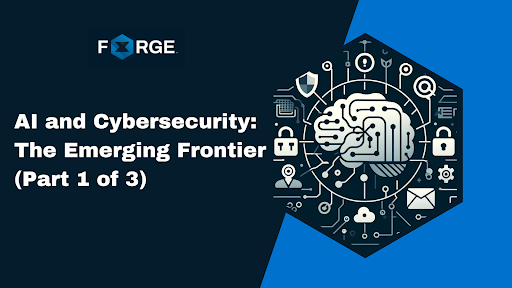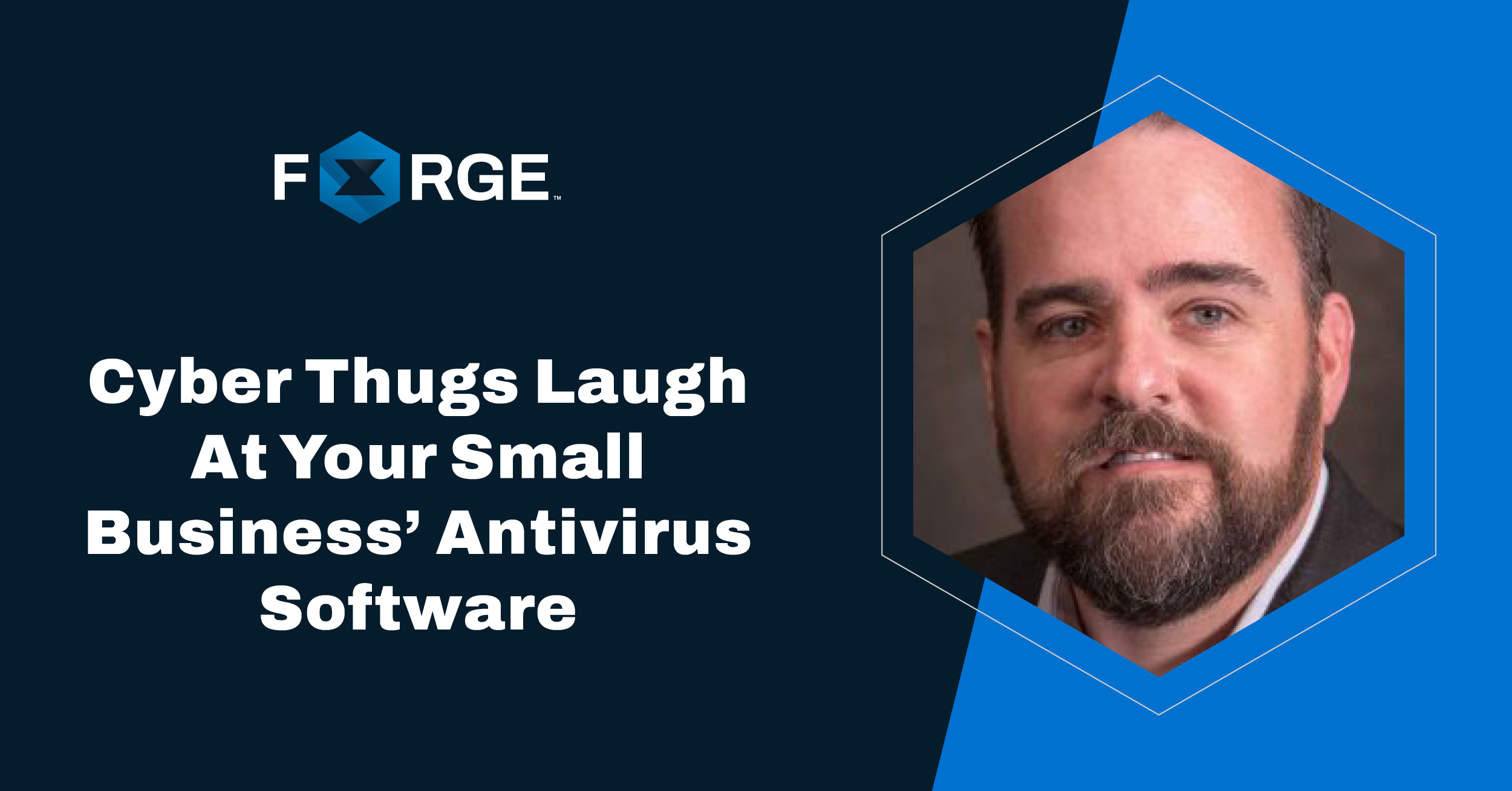Forge Blog
As June rolls in, so does the excitement of summer travel. Whether you're planning a cross-country road trip, an international adventure, or a local staycation, ensuring your digital security is just as important as packing your sunscreen. The increased use of public Wi-Fi, online booking, and social media sharing during travel creates ripe opportunities for cybercriminals. Here’s how to protect your digital life while you enjoy your summer.
Have you ever received an unexpected phone call, email, or pop-up message warning you about a virus on your computer? These are common tactics used in tech support scams, a prevalent form of cybercrime that can lead to significant financial loss and data theft.
Summer is just around the corner, and for many, that means planning exciting vacations. However, the thrill of booking that perfect getaway can sometimes overshadow online safety. Cybercriminals often target travelers, knowing they are actively making online transactions and might be less vigilant. To ensure your summer travel plans don't turn into a cybersecurity nightmare, it's crucial to be aware of potential risks and take proactive steps to protect yourself.
Spring is a time of renewal, and for many, that means taking advantage of seasonal sales and deals. However, this time of year also brings a surge in scam activity. Scammers are eager to exploit the excitement of spring sales, luring unsuspecting shoppers with fake deals and fraudulent websites. To ensure your spring shopping is safe and enjoyable, it’s essential to be aware of common scams and take precautions.
Tax season can be a daunting time for many, filled with the fear of audits and the stress of navigating complex tax laws. Unfortunately, scammers capitalize on these anxieties, making tax season a prime time for fraud. While many associate tax scams with the April 15th deadline, it’s crucial to understand that these schemes persist throughout the year. Scammers work tirelessly to exploit your fears and steal your hard-earned money.
Smishing attacks are on the rise, and cybercriminals are now using USPS impersonation scams to trick unsuspecting victims. These scams rely on fraudulent text messages containing seemingly legitimate PDF attachments, designed to steal sensitive information from users who trust official-looking documents.
Sedrick Howard’s path to becoming a cybersecurity professional is as unique as it is inspiring.
As the holiday season draws near, it's not just the time for joy and giving—it’s also peak season for scammers. Fraudsters take advantage of the festive hustle and bustle, creating schemes designed to exploit your holiday spirit and generosity. Protecting yourself from these schemes is essential to ensure your holiday remains merry and stress-free.
As the holiday season nears, scammers ramp up their efforts with fake charity appeals and fraudulent offers. They exploit the festive spirit to steal money or personal information. Be cautious—verify charities and holiday deals before donating or purchasing, and protect yourself from falling victim to these common scams.
In an era where technology advances rapidly, deepfake technology has emerged as both a fascinating innovation and a potential cybersecurity nightmare. Originally developed for entertainment purposes, deepfakes use artificial intelligence (AI) to create hyper-realistic videos and audio, making it possible to fabricate someone's likeness or voice with startling accuracy. While the initial use cases were harmless, deepfakes have now become a significant concern in cybersecurity, especially as they are increasingly being weaponized in phishing attacks, misinformation campaigns, and identity theft. In this blog, we’ll dive into how deepfake technology works, real-world examples of its malicious use, and how organizations can protect themselves from falling victim to deepfake-related attacks.
As the November elections draw closer, concerns about foreign adversaries trying to meddle in U.S. elections are ramping up again. Over the past few years, foreign entities have become more sophisticated in their attempts to create chaos, spread false information, and influence how people vote. While government agencies are hard at work protecting election systems, it's just as important for voters and local election officials to stay alert and aware of these threats.
Tom Flak, Director of Cyber Programs at Forge Institute, says there's an uptick in phishing concerns during election seasons because people are already used to receiving campaign messages.
“While you normally should be suspicious when you get an email from someone you don’t know or don’t really communicate with, during the election season, you do kind of expect to get unsolicited emails from political campaigns," Flak says.
Healthcare facilities are increasingly targeted by cybercriminals, with ransomware and data breaches posing severe risks to patient care and data integrity. In this post, we address the rising threat of ransomware and data breaches in the healthcare industry and how healthcare providers can prevent and mitigate these risks.
Frequent reminders to update your phone are vital for protecting your data and optimizing device performance, as outdated systems are prime targets for cybercriminals. In addition to enhancing security, software updates often introduce new features and improve overall functionality. Staying current with updates not only helps prevent costly cyberattacks but also ensures a smoother and more efficient user experience.
In today's digital era, data breaches have become alarmingly common, putting millions at risk of having their personal information exposed. Receiving a notification that your data has been compromised can be unsettling, but it's crucial to remain calm and take swift action. Start by understanding what information has been affected and follow the provided instructions.
The 5th Annual Forge Institute Cyber Summit will be held on October 7-8, 2024, at the Statehouse Convention Center in Little Rock, Arkansas. This pivotal event will convene top cybersecurity experts and stakeholders to discuss the latest strategies and innovations in cyber defense.
Jim Richberg, Fortinet’s Head of Cyber Policy and Global Field Chief Information Security Officer (CISO), will deliver a keynote address.
The Arkansas Cyber Defense Center (ACDC) is committed to advancing cybersecurity awareness and defenses across Arkansas. Our focus includes analyzing emerging threats, understanding the tactics employed by cybercriminals, and providing guidance to mitigate these threats. This blog is part of a series focused on the intersection of artificial intelligence and cybersecurity.
The Arkansas Cyber Defense Center (ACDC) is committed to advancing cybersecurity awareness and defenses across Arkansas. Our focus includes analyzing emerging threats, understanding the tactics employed by cybercriminals, and providing guidance to mitigate these threats. This blog is part of a series focused on the intersection of artificial intelligence and cybersecurity. Our aim is to provide a comprehensive understanding of how AI is reshaping the landscape of cyber threats and the steps we can take to lessen these risks.
The Arkansas Cyber Defense Center (ACDC) is committed to enhancing the cybersecurity posture of organizations across the state of Arkansas. Our focus includes analyzing emerging threats, understanding the tactics employed by cybercriminals, and providing guidance to mitigate these threats. In the context of increasing global ransomware incidents, this blog aims to spotlight the Black Basta ransomware variant, explaining its operational tactics and offering prevention strategies.
Smart devices are everywhere! Internet of Things (IoT) devices such as camera doorbells, smart thermostats, and smart speakers have revolutionized the way we manage our offices and homes. These devices provide unparalleled convenience by allowing us to monitor and manage them from any location. These advancements represent a significant evolution in making our daily routines more efficient and our lives easier. However, we must learn to navigate the balance between embracing these conveniences and mitigating the risks that come with them.
The Arkansas Cyber Defense Center (ACDC) is dedicated to bolstering cybersecurity across the state, and offers crucial support and resources to organizations seeking to enhance their digital defenses. Understanding how to protect against device compromise is more important than ever. In this blog you can learn some of the methods threat actors use to compromise your organization’s devices and some proactive strategies to help protect your organization from these breaches.
Increasingly, small businesses are big targets for bad actors on the web. Recent analysis suggests that 46% of all cyber breaches impact businesses with fewer than 1,000 employees, with malware and ransomware attacks generating $2.8 billion in damages in 2020.1
In 2021, Forge Institute partnered with DOD SkillBridge to create a unique, one-of-its kind program designed to provide transitioning military members with a work-based cyber learning internship opportunity in the private sector. The Forge Fellowship program was launched with five Fellows.Two years later, I caught up with four of those members to glean their insight into the program and its importance to the state and nation’s security.
As the Chief External Affairs Officer of the Forge Institute, a former Air Force Master Sergeant, and now retired Commissioned Officer, my journey has been one of transformation and personal growth. In this post, I want to reflect on what it truly means to be a "Mustang" and how this unique experience has shaped me both in the military and in my current role.


























The Arkansas Cyber Defense Center (ACDC) advises all individuals and organizations to take immediate precautions following reports of cyberattacks targeting U.S. telecom networks by the State-Sponsored Advanced Persistent Threat (APT) group, Salt Typhoon. These attacks pose significant risks to personal privacy, business operations, and critical infrastructure.